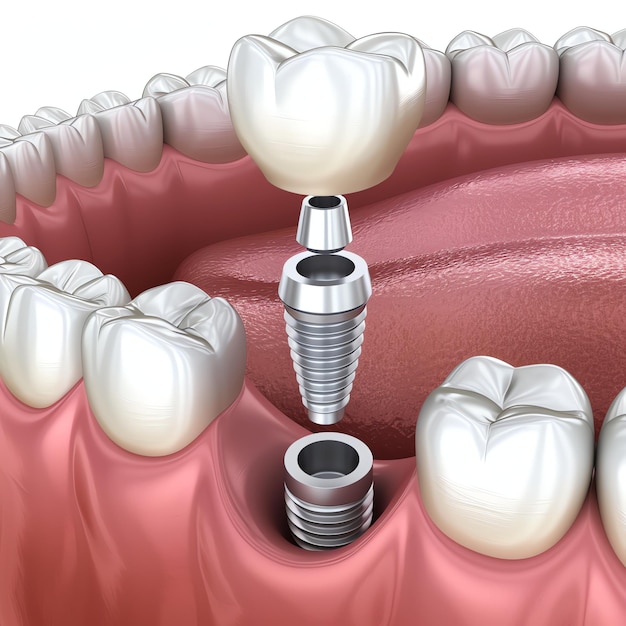
Investing in dental implants can greatly enhance your quality of life. These implants offer a strong and attractive solution for missing or damaged teeth. While your dentist’s expertise is crucial, taking good care of your implants is equally important.
In addition to regular brushing and flossing, your diet significantly impacts the longevity of your implants. Here are some tips on choosing foods that keep your implants in top shape.
In the initial recovery phase after getting dental implants, it’s wise to follow a soft-food diet to ease stress on your new implants. Foods like mashed potatoes, applesauce, and scrambled eggs are ideal because they require minimal effort to chew, helping your implants heal properly. Soups and smoothies are also excellent, providing an easy way to include essential nutrients in your diet.
Choosing these softer foods can speed up your recovery, ensuring your implants integrate well and last for the long haul. Once you’ve moved past the initial healing stage, focus on long-term dietary choices to support the strength and durability of your implants.
Calcium and phosphorus are vital for maintaining strong bones and teeth, directly influencing the stability of your dental implants. Dairy products like cheese and yogurt are high in both minerals. If you’re lactose intolerant or prefer plant-based options, almonds and leafy greens are great alternatives.
Including these foods in your daily diet helps maintain the bone structure supporting your implants, promoting long-term durability and function.
Vitamins also play a key role in oral health. Vitamins A, C, and D are particularly beneficial. Vitamin A, found in carrots and sweet potatoes, aids in healing after dental procedures. Vitamin C, abundant in citrus fruits and strawberries, boosts your immune system, reducing infection risks. Vitamin D is critical for calcium absorption and can be found in fatty fish like salmon and fortified cereals.
A balanced intake of these vitamins greatly contributes to your overall health and the lifespan of your dental implants.
The acidity of your diet can impact your oral health, especially with dental implants. Acidic foods and drinks like citrus fruits, tomatoes, and sodas can erode tooth enamel, affecting both natural teeth and the environment around your implants.
To mitigate this, consume acidic items in moderation and rinse your mouth with water afterward. This helps neutralize the acid, promoting a balanced pH level in your mouth.
Lean proteins like chicken, turkey, and fish are also crucial for maintaining dental implants. They are rich in amino acids that help repair gums and other oral tissues and contain vital minerals like phosphorus, which supports strong bones and teeth.
While focusing on specific nutrients like calcium, phosphorus, and essential vitamins is important, maintaining a varied diet is equally crucial. A balanced intake of fruits, vegetables, proteins, and whole grains provides a comprehensive range of nutrients supporting your overall health and the stability of your dental implants.
Staying hydrated is also important for oral health. Water acts as a natural cleanser, flushing out food particles and bacteria that can accumulate around your implants. Consistent hydration aids saliva production, which contains enzymes that combat harmful bacteria. Drinking water regularly is a simple yet effective step toward maintaining your implants long-term.
Taking care of dental implants involves more than just cleaning and check-ups. Your food choices significantly impact their longevity. By incorporating nutrient-rich foods and avoiding hard or acidic items, simple dietary adjustments can make a big difference. It’s a worthwhile investment for a lifetime of healthy smiles.